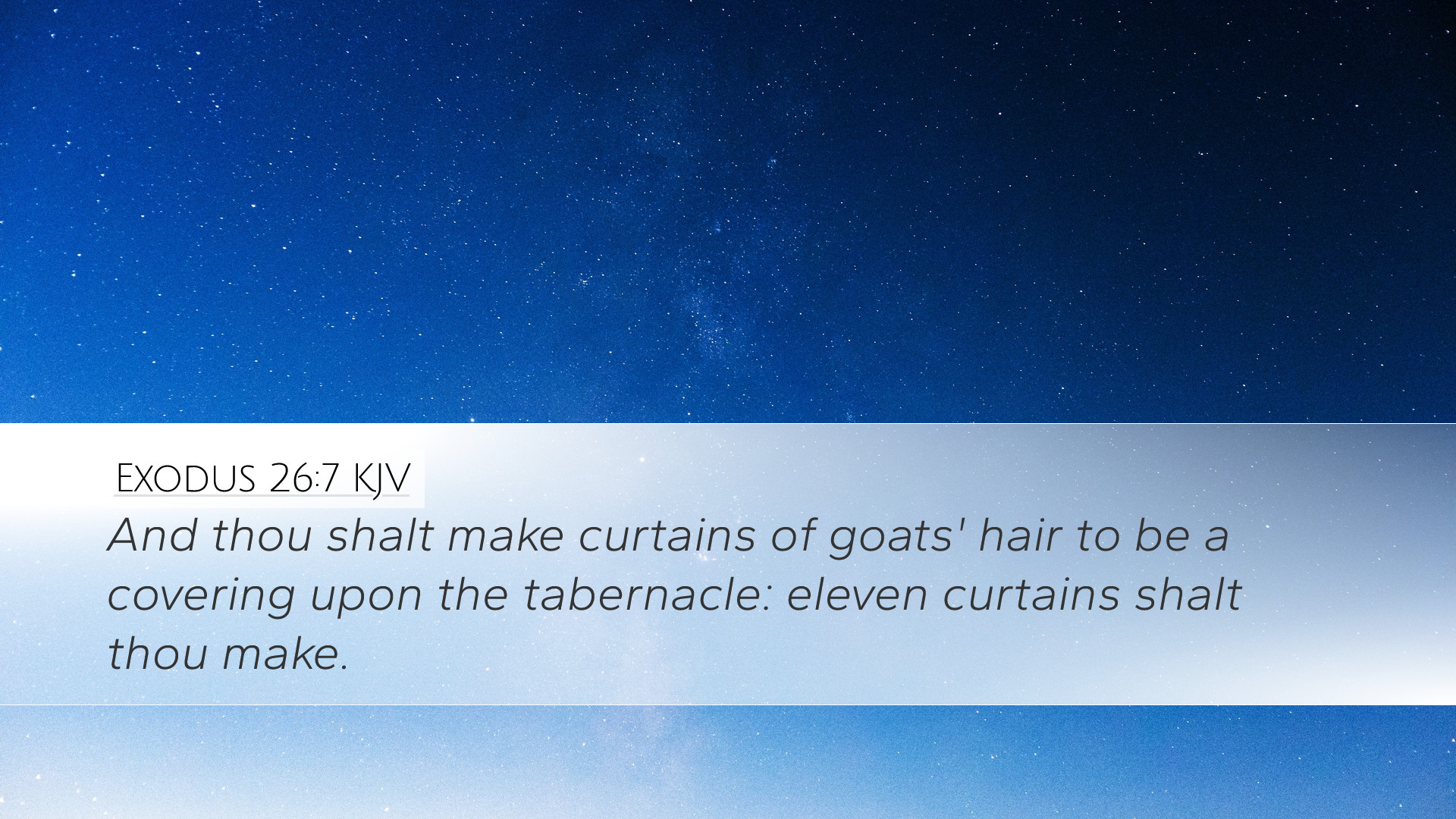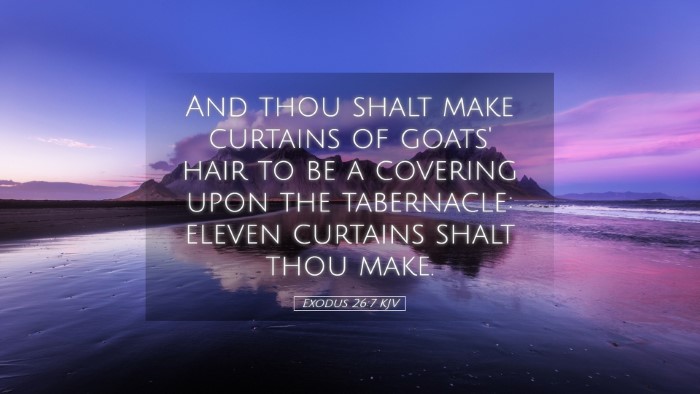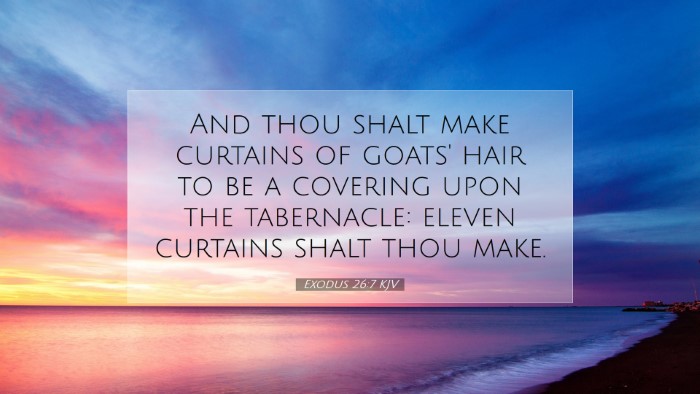Exodus 26:7 - Summary and Commentary
Exodus 26:7 states, "And thou shalt make curtains of goats' hair to be a covering upon the tabernacle: eleven curtains shalt thou make." This verse is part of God's detailed instructions to Moses regarding the construction of the Tabernacle, a sacred space for divine worship in the Israelite community. The Tabernacle serves as a crucial symbol of God's presence among His people. Below is a synthesis of insights from various public domain commentaries, which provide theological depth and practical reflections related to this verse.
Contextual Overview
The book of Exodus presents the story of Israel's deliverance from Egypt and their covenant relationship with God. The Tabernacle, introduced in Chapter 25 and described in detail through 26, functions as God's dwelling place amid the people. The construction of the Tabernacle not only emphasizes God’s desire to dwell with His people but also highlights the importance of aesthetic and functional elements in worship.
Significance of Goats' Hair
Matthew Henry notes that the use of goats' hair for the curtains symbolizes a humble yet practical covering, suitable for the mobile nature of the Israelites' journey. The choice of this material reflects God's ability to transform the common into the sacred, providing both shelter and significance.
Albert Barnes comments on the practicality of using goats' hair, denoting its durability and flexibility, which are essential for the nomadic lifestyle of the Israelites. The curtains made of goats' hair would effectively serve as a protective layer against the elements, ensuring that the sacred space was both sheltering and signifying.
The Number of Curtains
The instruction to make eleven curtains signifies completeness and divine order, as indicated by Adam Clarke. Each curtain contributes to the overall design and purpose of the Tabernacle. The number eleven is particularly interesting, as it exceeds the typical ten, suggesting a measure of grace or divine provision.
Symbolism of the Number Eleven
In biblical numerology, the number eleven can represent disorder or incompleteness. However, in the context of the Tabernacle, it takes on a positive connotation. It signifies God’s grace that overshadows human imperfection, and Albert Barnes emphasizes that through this structure, God brings order and divine presence to what may appear chaotic.
Application for Worship
This verse serves as a reminder of the importance of preparation and reverence in worship. Just as the Israelites were instructed to create a sacred space, modern believers are called to consider the environment and materials that aid in experiencing God's presence. The care taken in constructing the Tabernacle can inspire pastors and church leaders to approach their worship spaces with intentionality.
The Role of the Tabernacle in Redemption History
Throughout the commentaries, the Tabernacle is viewed as a foreshadowing of Christ. Matthew Henry points out how the materials and structure reflect the character of Christ—humble yet divine. The goats' hair, as one of the coverings, may symbolize the sacrificial nature of Jesus, who would ultimately be the true covering for sin for all believers.
Connections to New Testament Theology
In the New Testament, the idea of Christ being our ultimate tabernacle is explored in passages such as John 1:14, where it states, "And the Word was made flesh, and dwelt among us." Here, "dwelt" can also be translated as 'tabernacled', emphasizing the continuity between the Old Testament structure and the indwelling of Christ among His people.
Conclusion
Exodus 26:7, with its detailed instructions about the Tabernacle's curtains, unveils layers of meaning that resonate with the journey of faith among God’s people. For pastors, students, and theologians, this verse not only enriches the understanding of worship but also frames a broader narrative of God's desire to dwell among humanity through Christ. The insights gleaned from the commentaries reveal how the practical and the profound converge within the sacred narrative, inviting deeper reflection on the identity and mission of the church today.


